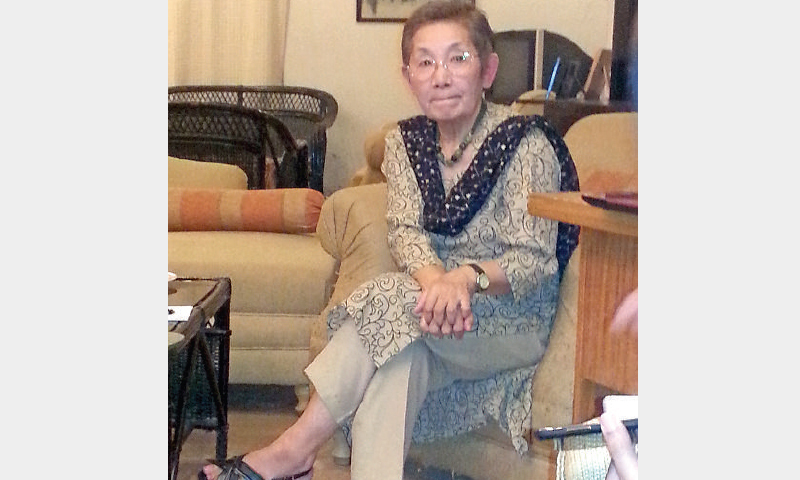ISLAMABAD: Toshikazu Isomura, Counsellor Public Affairs, Embassy of Japan, hosted a dinner to celebrate the work of Professor Chitose Okada, who has dedicated the past 20 years to learning, recording and translating an oral epic poem from Gilgit-Baltistan.
A professor of Music Education at the Research Institute of Education in the Momoyama Gakuin University in Izumi, Osaka, Professor Okada first came to Pakistan on a mountaineering expedition in 1977.
While in Skardu, Baltistan region, she became fascinated with the beautiful regional music and culture. Her involvement with the epic poetry came later during a second trip in 1994 when in the month of Muharram, the music was silent but somebody introduced her to oral storytelling.
In the tradition of daastangoi – narration of an epic tale marked with fluidity of phrase and rhythmic narration – the epic poem Professor Okada was introduced to, seems to have many regional variations and versions. And the art of narrating the chapters has been passed on from generation after generation of storytellers.
Professor Okada says: “In the freezing north, people gather in a special room in the winters and the chapters of the epic of Kesar are recited. These are accompanied by instruments and melody, and this is what attracted me to the genre. Initially I did not understand any of the words but after 15 years of study I speak and understand the Balti language.”
She added that the language, Balti, is very similar to Tibetan and a similar epic is found in Tibet.
Mr. Isomura said: “When we explore the dialects of the mountainous countries, we find similarities in what is spoken as far as Bhutan.”
Describing some of the aspects of the Kesar Epic, she said: “The story is of a land where people were quarrelling and Kesar was sent as a saint or emissary, in some versions possibly the son of a deity. The twelve chapters of the story revolve around individual lifecycle events, like birth, marriage and so on, and issues such as quarrels amongst neighbours.”
As oral traditions are wont to be, the Kesar epic is also vast and difficult to compile. Individual storytellers rarely know more than two or three chapters, while some only know one.
The result has been that Professor Okada has travelled to the various Balti speaking regions and recorded as many as 30 different storytellers.
She shared part of a recitation by Khacho Haider Khan, a master in the art, whom she recorded almost two decades ago. Khacho passed away some 15 years ago.
She has faced some interesting challenges in the process of accessing the recordings. In some instances she says: “The storytellers stop narrating because of age or religion. As they are enfeebled it is hard for them to carry on with the tradition but some promise God that they will give up frivolous entertainment as they hope to go to heaven.”
As a foreigner, her movement in some of the areas close to the Line of Control was also restricted.
She hopes that her work will be published in Balti, English and Japanese, thereby preserving the richness and diversity of the tale and holding it to an eternal standard.
She says: “Thus far, the old storytellers say they recite the story exactly as it was taught to them by their masters but the truth is that there are variations and the story is fragmented.”
Unlike many other parts of the subcontinent where storytelling is a family profession, in Baltistan whoever is interested can go to a master storyteller to learn the art.
What Professor Okada particularly enjoys about the tradition is the interactive nature of storytelling.
The audience engages with the narrator by asking questions, feeding him the correct cues and applauding to urge him onwards. Since each chapter is roughly a two-hour long performance the support and enthusiasm of the listeners is a key ingredient to a successful narration.
Published in Dawn, September 17th, 2014














































